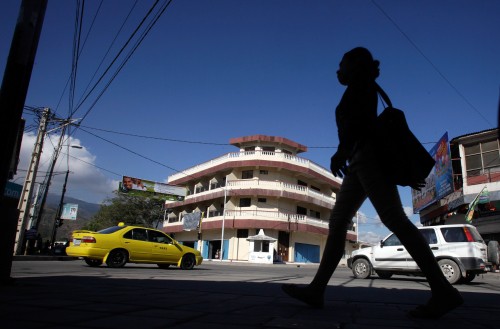Image: Downtown Dili, East Timor. (Photo: Asian Development Bank).
The political settlements framework can seem a distraction to some practitioners, many of whom have been thinking and working politically about development for a number of years. They find the term difficult to define with any precision and, in any case, quite unnecessary. In the real world, progress towards better understanding of and engagement with the political conditions which help and hinder development has been ticking along nicely, independently of the academic debates.
Yet there are those who feel strongly that the settlements framework is invaluable. It brings into clearer focus, they say, the importance of elites, power and politics in the emergence – or frustration – of locally legitimate institutions that promote development. For this group, the focus on political settlements is a timely and welcome aspect of a broader trend within development theory and practice. They feel it marks a greater engagement with, and a deeper understanding of, the political dynamics in developing countries. They see this as a prerequisite for effective progress on key development objectives.
Participants at the recent DLP political settlements workshop – a diverse group of development researchers, political scientists, donor agency staff and development practitioners – were aligned at various points on the spectrum between these two views. In the first session of the day we tried to get a clear understanding of exactly what we all understood the term ‘political settlements’ to mean. There was some consensus on a few key points:
- Political settlements involve negotiation, bargaining and compromise between elites, and between elites and their respective groups of followers or constituents;
- They are ongoing political processes rather than static agreements or deals;
- Political settlements unfold at international, national and sub-national levels;
- Settlements can be more or less inclusive of both elites and of wider social groups. The underlying causes of fragility and conflict can often be explained partly by reference to the exclusion or inclusion of particular elites or groups.
The sessions that followed highlighted two overarching lessons. First, that the settlements framework has undeniable explanatory and analytic value. Second, that the development community can use and apply a set of tools, principles and associated concepts which can be loosely grouped under the term ‘political settlements analysis’, without having overly rigid parameters for how to carry out that analysis. It was sufficient for us to start from a family of ideas and broad guiding concepts to engage in a productive and enlightening series of presentations, discussions and group exercises.
Development theorists and practitioners explained how they are already using the political settlements framework. Case studies from Somaliland, Myanmar, East Timor and the Democratic Republic of the Congo, among others, underscored for me the crucial value and importance of adopting a political settlements perspective in understanding and getting to grips with the social, political and economic obstacles to development.
We heard time and again and from a variety of perspectives how the performance of institutions and the prospects for inclusive economic growth and political stability are shaped by formal and informal power relations and negotiations among elites, and among elites and their respective groups of constituents. We heard how the political systems in fragile and conflict-affected countries are often characterised by exclusive political settlements.
Perhaps the most engaging aspect of the workshop was a group exercise where we were presented with a case study of a fictional country and asked to hammer out how we would use a political settlements approach to get to grips with its development challenges. This was exceptionally thought-provoking: we were forced to confront the key challenge for any theoretical model – how do we convert it into practical recommendations for action? This issue is particularly thorny for the political settlements framework precisely because context is the key. Settlements analysis by its nature does not lend itself easily to rigid, pre-defined procedures.
My group did have some clear recommendations for our fictional aid program – we wanted to make trade easier and improve transport infrastructure. But we were also struck by the fact that we simply didn’t have enough information about the national, sub-national and international political context of our imaginary country to be able to construct a concrete picture of the way our aid program should unfold. Our group discussion, mindful of the significance of locally appropriate solutions to development challenges, signalled the fundamental importance of deep knowledge of domestic political conditions for a political settlements framework.
I came away from this session – and the workshop as a whole – feeling that it is important to avoid getting too bogged down in purely conceptual discussions around political settlements. Valuable though it is to have conceptual clarity, the emphasis now must surely be on establishing and embedding the day-to-day practices that follow from a politically-informed approach to development.
There is a rich body of research literature which adopts a politically-informed perspective to diagnose and understand the conditions for developmental progress. The DLP workshop – and the fictional programming exercise in particular – underscored the real challenge, to convert this work into operational guidelines for mainstream aid practices.
I’m sure I wasn’t alone in wishing that DLP’s founding Director of Research, the late Adrian Leftwich, could have been with us. As he was fond of saying, the acid test for assessing the value of any analytical tool is whether it helps us answer the question ‘What do we do on Monday?’.
See more posts on political settlements by researchers, policy-makers and practitioners.










